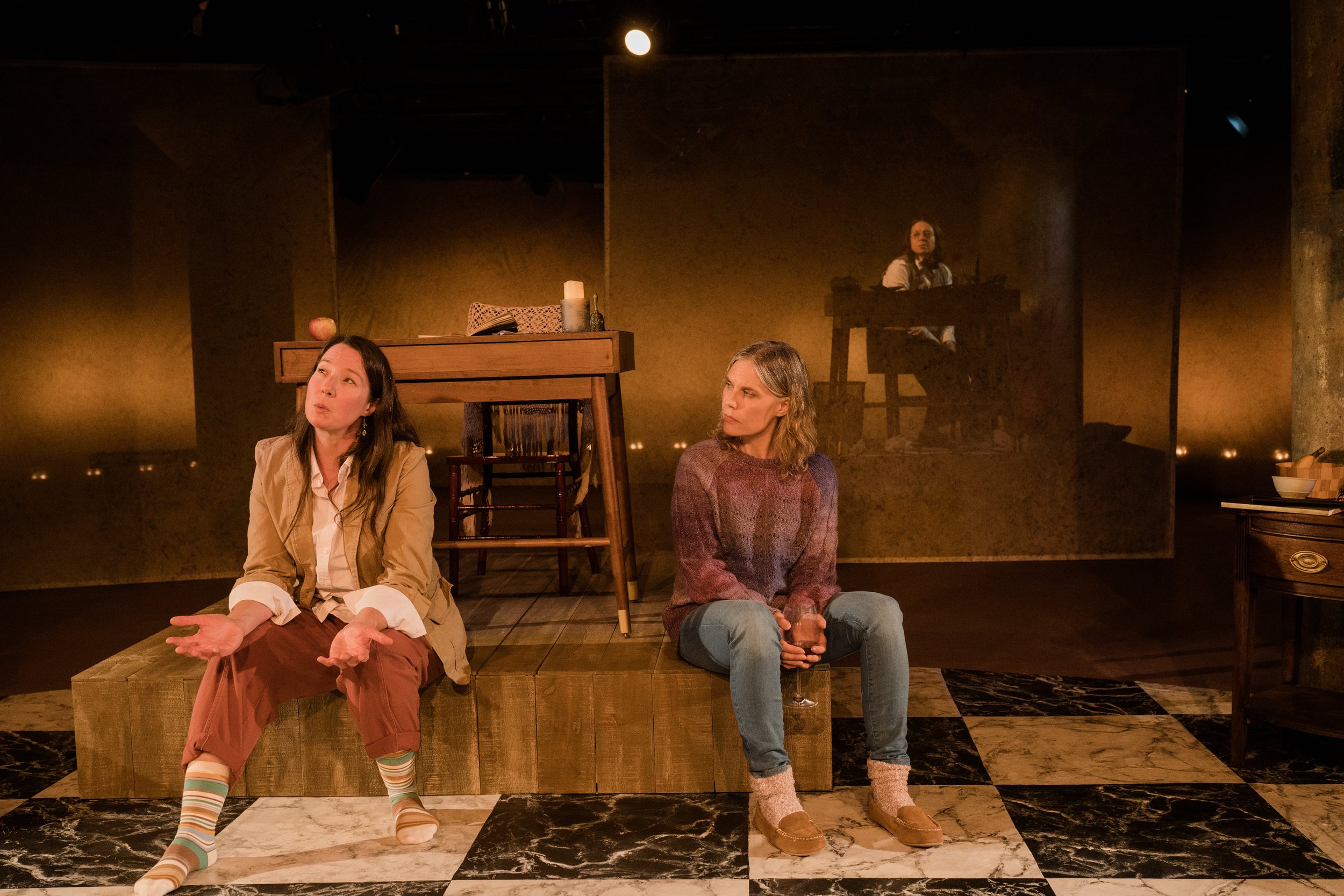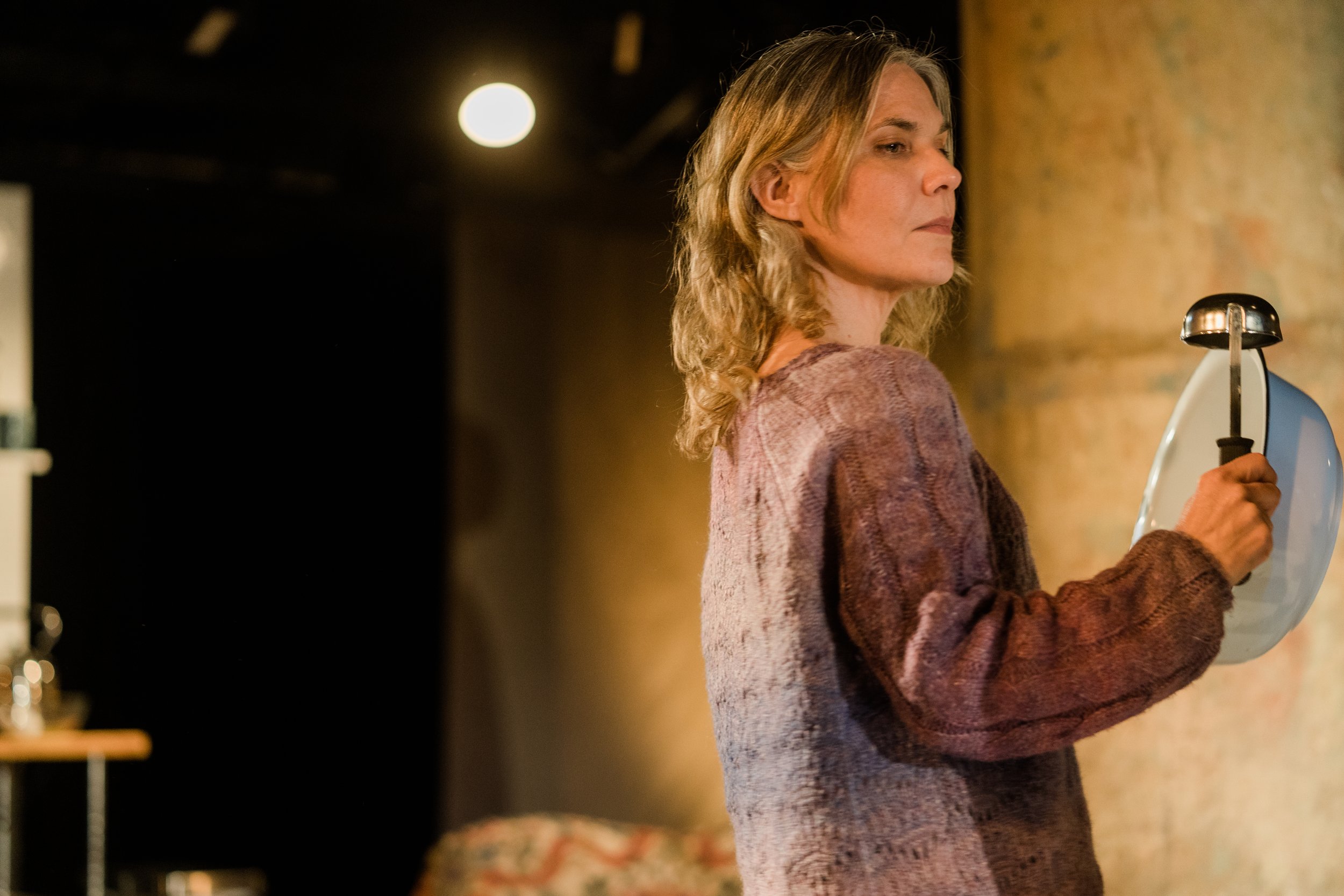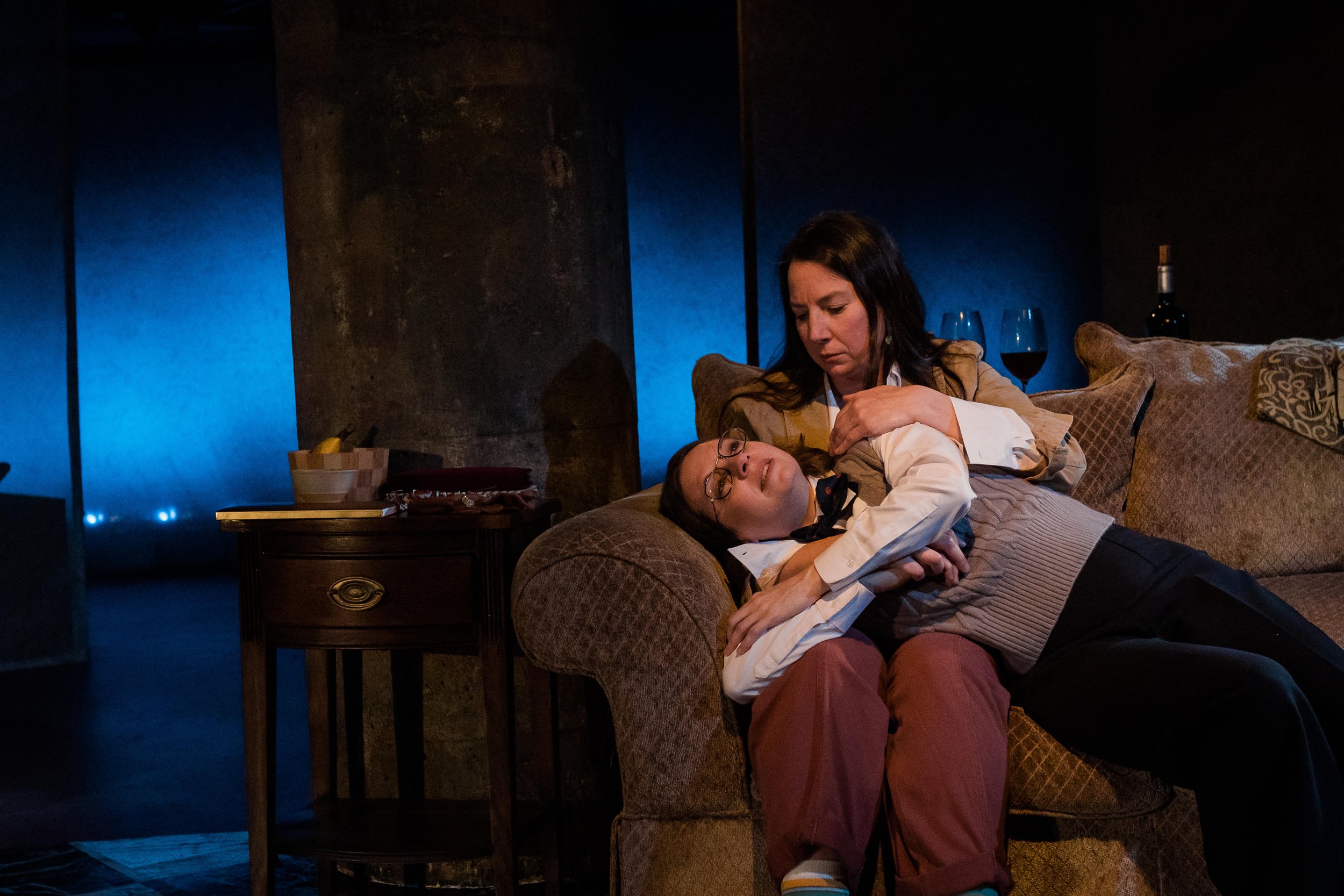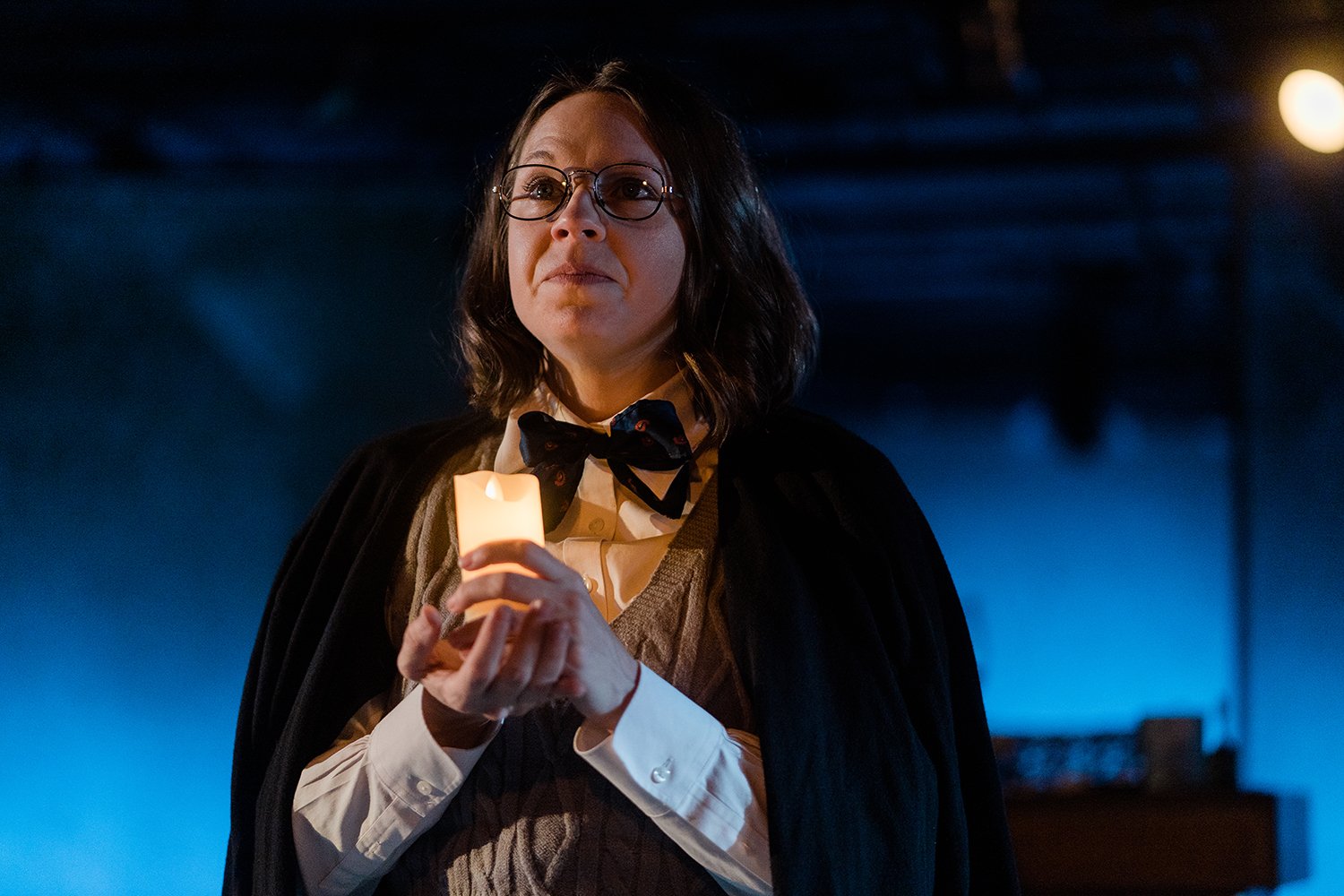Feeding on Light @ Undermain Theatre
—Review by Martha Heimberg
“It was hard having a daughter who was a saint,” sighs Simone Weil’s mom, who tried her best to keep her brilliant daughter from freezing or starving herself in her activist empathy with the poor farmers and laborers of the world. And certainly it’s no easy assignment to write a play about the paradoxical French philosopher and mystic (1909-1943), who is the subject of Lenora Champagne’s Feeding on Light at Undermain Theatre. The play, having its world premiere, is the first to be funded through the Katherine Owens Undermain Fund for New Work, and is dedicated to Owens, the company’s founding artistic director. It is directed by Bruce DuBose, her widower and Undermain’s producing artistic director.
Commissioned by Owens before her untimely death in 2019, the play arose from conversations about Weil’s life and work between Owens and the playwright over several visits in New York City and at Champagne’s upstate cabin. The play dramatizes those talks between the two friends, and also brings in the subject herself, in a fascinating triad that allows the modern women—and the audience—to hear it from the mystic’s mouth. It’s Simone Weil 101, a heady trip loaded with ethical and metaphysical ideas, and delivered by three first-rate actors.
Katherine (Shannon Kearns) and Nora (Joanna Schellenberg) are curled up on cushioned sofas, laughing about Weil’s nerdy love of math games as Nora brings their lunch from the cabin’s small kitchen. Nora imagines the difficulties Weil’s affluent French Jewish family must have endured—having to regularly rescue their determined prodigy, activist, and wanna-be revolutionary, who yearned to put her body in the line of fire.
Behind the chatting women on Robert Winn’s warm, roomy set we can see bespectacled Simone (Jenny Ledel) through a transparent screen, wearing a suit and bow tie, and chain smoking as she scribbles in her journal. She chimes in to say she works as a farmer and in factories to know deeply what labor is—what it is to grow fruit, or to work until exhausted on a speed-driven assembly line. What if you could talk to your favorite writer just like that?
During the next swift and scene-packed 80 minutes, Champagne takes us through Weil’s frenzied, passionate life, from the fairy tales her mother told her to her death at age 34 in London, where she contracted TB during a failed attempt to organize nurses for France, then suffering under German occupation. Before she died, Weil loaded her life with a physical and intellectual search for the good that led her from Judaism to Christianity—away from the downward gravity of the “Ancient Roman” philosophy she studied, and toward a Utopian vision of grace, and the belief that the soul waiting for grace “feeds on light.”
Nora and Katherine talk of their own lives and similar backgrounds. And they have fun together. At one point the music breaks into a swing dance and the two friends dance around the stage with a dishpan and a platter, collapsing in laughter. Both are taken with Weil’s conception of focusing one’s attention deeply on a given object to know it and respect its singularity, whether that subject is a shining apple you do not eat, or a suffering person you acknowledge with compassion. Clearly, this aspect of Weil’s thought is profoundly central not only to “good” people but to good actors as well—who learn lines, inhabit and become characters, and draw the audience into the play.
Ledel’s Simone is as vulnerable as she is tough, and even funny when her body just cannot perform like a rebel. Migraines, hunger weakness, terrible vision get in the way. She admits the commandos in Spain “won’t let me shoot because of my poor eyesight.” Face lit by a candle in a cathedral, or dragging a foot burned in a clumsy accident, this fierce Simone shouts for freedom, projecting the touching innocence of the seeker. We also know she is protected by a devoted mom who bribes a roommate to keep her idealistic daughter fed and their shared room warm.
Kearns’ Katherine has an intense stillness when focused on Weil’s ideas. She laughs with her friend, and smiles when she talks about her West Texas land. Schellenberg’s Nora, as the playwright at work, conjures a scholar’s curiosity about Weil and a friend’s honest attention as both women remember why this writer means so much to them. Both actors easily become other characters in Weil’s life. Schellenberg is touching as her hovering mother, and Kearns is a comically stuffy headmaster who gives the young philosopher her first teaching job.
Sometimes the weight of Weil’s metaphysics—and the sheer span of her activities—can take on the feel of the academic lecture hall, even when voiced by fine actors. Somebody must awkwardly summarize Nazi occupation dates; a complicated moral conundrum is compressed into an epigram. Even these moments have a touching sweetness that always engages. DuBose and his troupe mostly avoid the Simone Weil “symposium” effect, however, and we come away feeling Weil’s unique energy and persona, and the ways her life and work continue to resonate in our own troubled times.
WHEN: Through November 27
WHERE: Undermain Theatre, 3200 Main Street, Dallas
WEB: undermain.org



